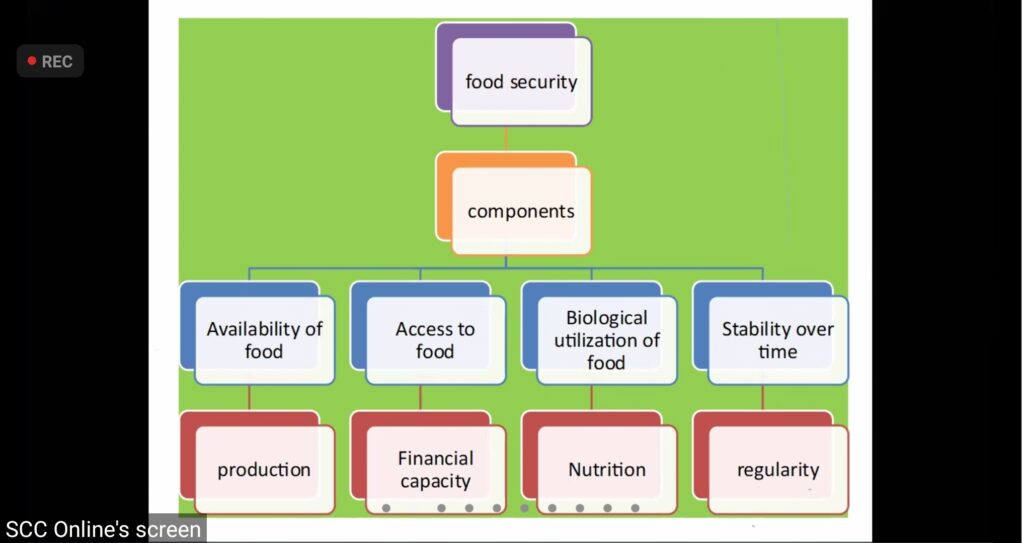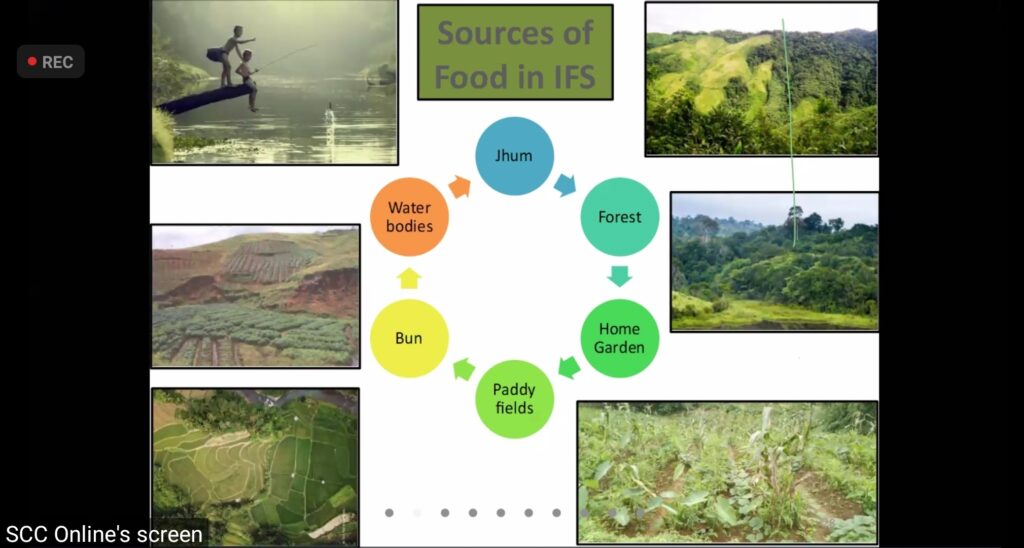To celebrate the occasion of the 75th day of independence, the Department of History, in collaboration with the NCC Cadets of Shillong Commerce College, Shillong, organised an online virtual event on the 15th of August. Dr. Bhogtoram Mawroh, Sr. Associate Research and Knowledge Management, NESFAS, was the resource person and gave a presentation on ‘Agriculture in India – A way forward.’
The event started off with a welcome speech by Dr. Sabita Sen, Principal of Shillong Commerce College. She highlighted that India’s gaining of independence was an assignment with destiny, as the struggle for freedom was a long and laborious one, witnessing the sacrifices of many freedom fighters. Hence, there are reasons to celebrate in a joyful manner but a need to also be accountable and resilient enough to say we are building towards a better future.
Dr. Mawroh, in his presentation, shared the important role played by the agricultural sector in the development of the Indian economy. Farmers, however, haven’t had it easy in India. He highlighted in detail the causes for the Great Famine of India (1876-78) during the British occupation and also delved deep into the causes of the Bengal famine of 1943. While India did slowly recover after gaining her sovereignty in 1947, the conditions that led to the aforementioned famines were still prevalent in India. Dr. Mawroh then proceeded to talk about how the 1960s came as an important break in Indian Agriculture. The introduction of the Green Revolution in 1967 greatly improved the production of crops in the country with the use of High Yielding Variety (HYV) seeds, irrigation, fertilizers, and pesticides.
However, the success of the green revolution wasn’t achieved simply without paying any price, Dr. Mawroh stressed. While in the short term, it helped India, the long-term impact the Green revolution had on the land and its farmers were extremely adverse. Today, the method that brought India much respite in the 1960s and 70s has failed environmentally as well as in terms of sustainability. Most of the major crops that come under it have shown a steep decline in output. The area of arable land in India is also tipped to reduce to just 100 million ha due to afforestation and environmental concerns arising from using chemical fertilizers and pesticides. Irrigation has also become a major concern with water being short in supply or too expensive. All the aforementioned factors, according to Dr. Mawroh, have led to many farmers’ suicide which has been an issue in India in the past decades. At the time of the green revolution, there was also reduced cultivation of indigenous crop varieties which led to the loss of a number of indigenous crop varieties.
Dr. Mawroh also briefly discussed the Three Farm Laws of 2020 before bringing in the dialogue of Indigenous Peoples’ Food Systems as a solution to the ongoing agricultural dilemma in India. His presentation highlighted the multiple food systems found in Meghalaya which most indigenous communities from the state are dependent on. He shared his expert opinion on the possibility of Meghalaya feeding itself with the rich biodiversity and abundance of food sources available in spite of the lack of infrastructure.
Some of the key issues that Dr. Mawroh focused on his presentation were:
- Food security and food sovereignty are two ideologies that differ in both approach and politics.
- Sovereignty has to be provided for the farmers and implementation on ecological principles must also be included in their food.
- Organic farming needs to be adopted for sustainable agricultural practices.
- To bring more focus on people, food producers and a localised food production system.
- There is a need for supporting sustainable systems for better livelihoods and food security.
Towards the conclusion of his presentation, Dr. Mawroh talked about how the coming of new technology and innovation has transformed our food systems completely. While acknowledging the importance of innovations, he was wary of the adverse consequences of these methods on agriculture as well as the livelihood of the farmers and cited the Green Revolution as a great example. He also called for systems where further advancements don’t necessarily mean the extinction of indigenous crop varieties. Dr. Mawroh concluded by stating that India needs to defend her local food systems and urged for a change in ideology when it comes to food production with an important need to focus on sustainable livelihoods.
 Translate
Translate






